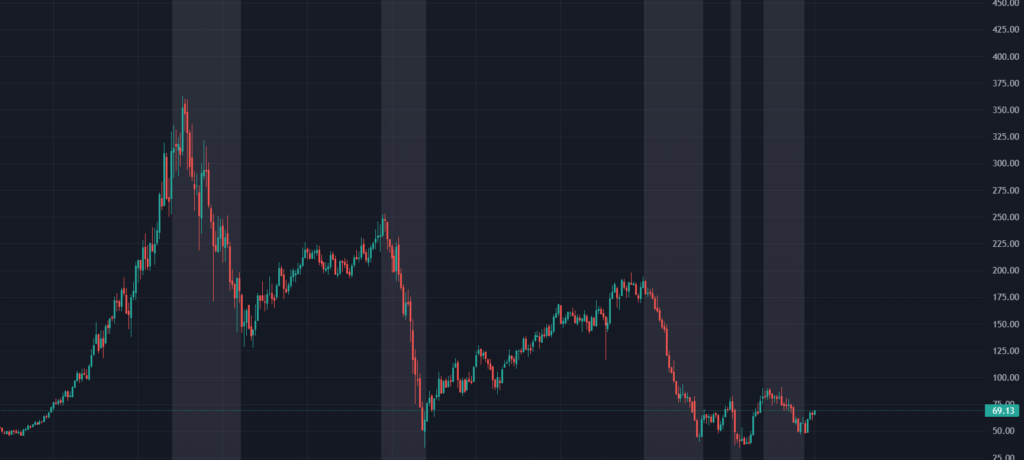This extremely helpful indicator allows you to highlight 7 custom date-based timeframes on your charts.
Market Crashes Timeframe Indicator – TradingView
Video Tutorial
How This Works
The default dates selected are what I consider to be the most significant 7 most recent market declines, including and since the 87 flash crash.
Note: The default dates are approximate but good enough to highlight the key timeframes of these pullbacks/crashes/corrections.

It’s simple to use and does exactly what it should.
I created this indicator to make it easier when looking at the overall story of a chart. I found it helpful to highlight these areas to see how a market or equity has responded during these significant market pullbacks.
The highlight alone I’ve found helpful, and it becomes more powerful if you combine it with your own trusted trade system.
Also, to get the most out of using the default dates it’s important to understand the narrative behind each pullback/crash. Here’s the list of what I consider significant pullbacks:
- Black Monday – Oct 87
- 1990s Recession – Jul 90 to Mar 91
- Dot Com Bubble – 2000 to 2002 or so
- Real Estate 2008 Crisis – I choose 2007-2009 to cover full insider knowledge and aftermath
- 2016 – 2018 – This isn’t seen as a pullback, but I have it as significant because in many markets and equities, this was an almost equal percentage pullback as 2008. See Notes below
- 2020 Crash – Covid-19 and related shenanigans pullback
- April 2021 to August 2022 – I believe we are in a current SHORT cycle so I’ve highlighted April 2021 as the start of what might be the start of a major decline testing Dot Com or lower levels.
A few notes on the above.
You’ll find on most of the pullbacks listed above most equities and related markets behave similarly or have similar patterns.
The 2016-18 pullback is the most difficult to track. For instance, GE in this timeframe had a -80% decline, whereas BA depending on how you want to measure it had a 50-110% gain.
